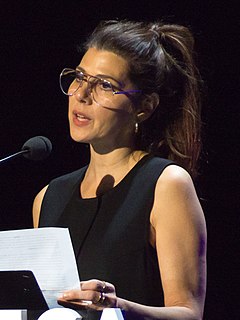A Quote by Howard Mumford Jones
Emerson was the chief figure in the American transcendental movement, a fact that complicates all accounts of him in literary or cultural history.
Related Quotes
I'm conscious of the fact that I'm sort of a bridging figure. I have my Chinese literary heritage and cultural background, so I'm comfortable with these things, but at the same time, I have to navigate the Anglo-American tradition, which has a self-centred view of what Asia and what being Chinese means.
When I speak to students about the Civil Rights Movement, I say that it is impossible to stop a determined movement that is captivating the American consciousness. I think the candidacy of Sen. Obama represents the beginning of a new movement in American political history that began in the hearts and minds of the people of this nation. And I want to be on the side of the people, on the side of the spirit of history.
When I began writing poems, it was in the late 60s and early 70s when the literary and cultural atmosphere was very much affected by what was going on in the world, which was, in succession, the civil rights movement, the antiwar movement, and the women's movement in the 60s, 70s, and into the early 80s. And all of those things affected me and affected my thinking, particularly the Vietnam War.
Does people not asking me about Asian American literature mean they don't see it as its own literary tradition? I certainly believe in it as its own literary tradition, because your race plays a great factor in how you are seen by the world, and how you see the world; the fact that I'm an Asian American isn't incidental to who I am as a writer. Where it becomes difficult is defining what, if anything identifiable at all, makes an Asian American book an Asian American book, other than the fact of its creator being Asian. And I'd argue that there is nothing identifiable beyond that.
Senator John McCain is unlike anybody else in not - not just in the Senate but in American politics. He`s unlike anybody else in American life. In his public life and in his heroics in war. He`s a singular figure in American life and American history. I think for everybody who has ever had a political difference with him that just instantly evaporates in the face of wanting the best for him because of cancer.
Gunn would be an important figure-rewarding, delightful, accomplished, enduring-in the history of English-language poetry even were his life not as fascinating as it now seems; he would be an important figure in the history of gay writing and in the history of transatlantic literary relations even were his poetry not so good as it is. With his life as it was and his works as they are, he's an obvious candidate for a volume of retrospective and critical essays, and this one is first-rate.





































